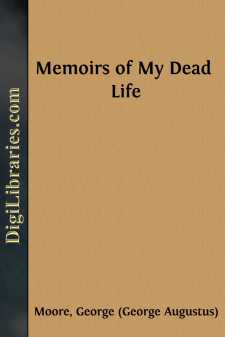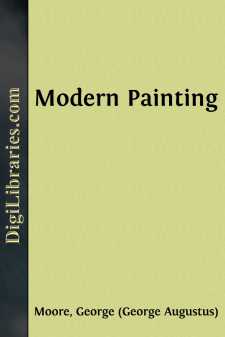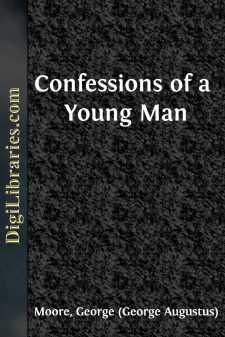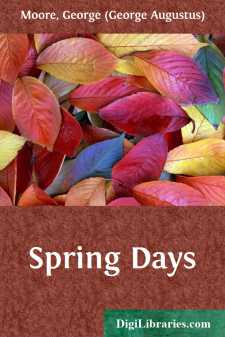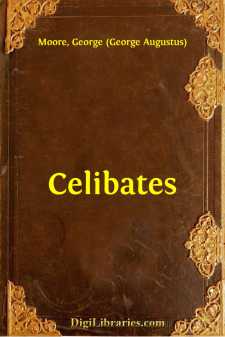Categories
- Antiques & Collectibles 13
- Architecture 36
- Art 48
- Bibles 22
- Biography & Autobiography 813
- Body, Mind & Spirit 142
- Business & Economics 28
- Children's Books 16
- Children's Fiction 13
- Computers 4
- Cooking 94
- Crafts & Hobbies 4
- Drama 346
- Education 46
- Family & Relationships 57
- Fiction 11829
- Games 19
- Gardening 17
- Health & Fitness 34
- History 1377
- House & Home 1
- Humor 147
- Juvenile Fiction 1873
- Juvenile Nonfiction 202
- Language Arts & Disciplines 88
- Law 16
- Literary Collections 686
- Literary Criticism 179
- Mathematics 13
- Medical 41
- Music 40
- Nature 179
- Non-Classifiable 1768
- Performing Arts 7
- Periodicals 1453
- Philosophy 64
- Photography 2
- Poetry 896
- Political Science 203
- Psychology 42
- Reference 154
- Religion 513
- Science 126
- Self-Help 84
- Social Science 81
- Sports & Recreation 34
- Study Aids 3
- Technology & Engineering 59
- Transportation 23
- Travel 463
- True Crime 29
Memoirs of My Dead Life
Description:
Excerpt
APOLOGIA PRO SCRIPTIS MEIS
[The APOLOGIA which follows needs, perhaps, a word of explanation, not to clear up Mr. Moore's text—that is as delightful, as irrelevantly definite, as paradoxically clear as anything this present wearer of the Ermine of English Literature has ever written—but to explain why it was written and why it is published. When the present publisher, who is hereinafter, in the words of Schopenhauer, "flattened against the wall of the Wisdom of the East," first read and signified his pride in being able to publish these "Memoirs," the passages now consigned to "the late Lord ——'s library" were not in the manuscript. On the arrival of the final copy they were discovered, and thereby hangs an amusing tale, consisting of a series of letters which, in so far as they were written with a certain caustic, humorous Irish pen, have taken their high place among the "Curiosities of Literature." The upshot of the matter was that the publisher, entangled in the "weeds" brought over by his Mayflower _ancestors, found himself as against the author in the position of Mr. Coote as against Shakespeare; that is, the matter was so beautifully written that he had not the heart to decline it, and yet in parts so—what shall we say?—so full of the "Wisdom of the East" that he did not dare to publish it in the West. Whereupon he adopted the policy of Mr. Henry Clay, which is, no doubt, always a mistake. And the author, bearing in mind the make-up of that race of Man called publishers, gave way on condition that this APOLOGIA should appear without change. Here it is, without so much as the alteration of an Ibsen comma, and if the Mayflower "weeds" mere instrumental in calling it forth, then it is, after all, well that they grew_.—THE PUBLISHER.]
Last month the post brought me two interesting letters, and the reader will understand how interesting they were to me when I tell him that one was from Mr. Sears, of the firm of Appleton, who not knowing me personally had written to Messrs. Heinemann to tell them that the firm he represented could not publish the "Memoirs" unless two stories were omitted; "The Lovers of Orelay," and "In the Luxembourg Gardens," —Messrs. Heinemann had forwarded the letter to me; my interest in the other letter was less direct, but the reader will understand that it was not less interesting when I tell that it came from the secretary of a certain charitable institution who had been reading the book in question, and now wrote to consult me on many points of life and conduct. He had been compelled to do so, for the reading of the "Memoirs" had disturbed his mind. The reader will agree with me that disturbed is probably the right word to use. To say that the book had undermined his convictions or altered his outlook on life would be an exaggeration. "Outlook on life" and "standard of conduct" are phrases from his own vocabulary, and they depict him.
"Your outlook on life is so different from mine that I can hardly imagine you being built of the same stuff as myself....


